Health Care > AQA Questions and Marking Scheme > Gynecologic Health Care (All)
Gynecologic Health Care
Document Content and Description Below
GYNECOLOGIC HEALTH CARE(4TH EDITION TEST BANK) Gynecologic Health Care: With an Introduction to Prenatal and Postpartum Care continues to set the standard for evidence-based gynecologic health care a... nd well-being in an extensively updated fourth edition. As in prior editions, the text presents gynecologic health care using a holistic and person-centered approach. Preventive health care includes having regular gynecologic examinations, even when no symptoms are present, and screening tests. Screening tests are done before people have any symptoms to check for disorders that can be prevented or treated effectively if recognized early. Recommendations for screening sometimes change as new evidence becomes available. Many women expect their gynecologist to provide general as well as gynecologic health care. General medical care may include counseling on general health and routine screening for the following: High blood pressure High levels of cholesterol and other fats (dyslipidemia) Diabetes Depression Tobacco use Alcohol use Drug use Women should have a gynecologic evaluation every year starting at about age 13 to 18. A pelvic examination is not usually done before age 21 unless there is a problem, such as irregular periods, pelvic pain, or a vaginal discharge. Doctors test sexually active adolescents for sexually transmitted infections, usually without doing a pelvic examination. Pelvic examinations are recommended for all women, starting at age 21. However, a woman can talk with her health care practitioner about whether these examinations need to be started at this age and how often they need to be done. Also, at age 21, most women should start having tests to screen for cervical cancer, such as a Papanicolaou (Pap) test. For gynecologic care, a woman should choose a health care practitioner with whom she can comfortably discuss sensitive topics, such as sex, birth control, pregnancy, and problems related to menopause. The practitioner may be a doctor, a nurse-midwife, a nurse practitioner, or a physician assistant. Gynecologic evaluation of young and adolescent girls can sometimes be done by their pediatrician. However, if the pediatrician cannot set aside time for the girl to speak privately about personal concerns or is reluctant to provide gynecologic care, another health care practitioner should be found for this care. The gynecologic visit is the time to ask the practitioner questions about reproductive and sexual function and anatomy, including safe sex practices, such as the use of condoms to minimize the risks of sexually transmitted infections. During a visit for gynecologic care, doctors ask questions (the history) and do a physical examination. [Show More]
Last updated: 1 year ago
Preview 1 out of 86 pages
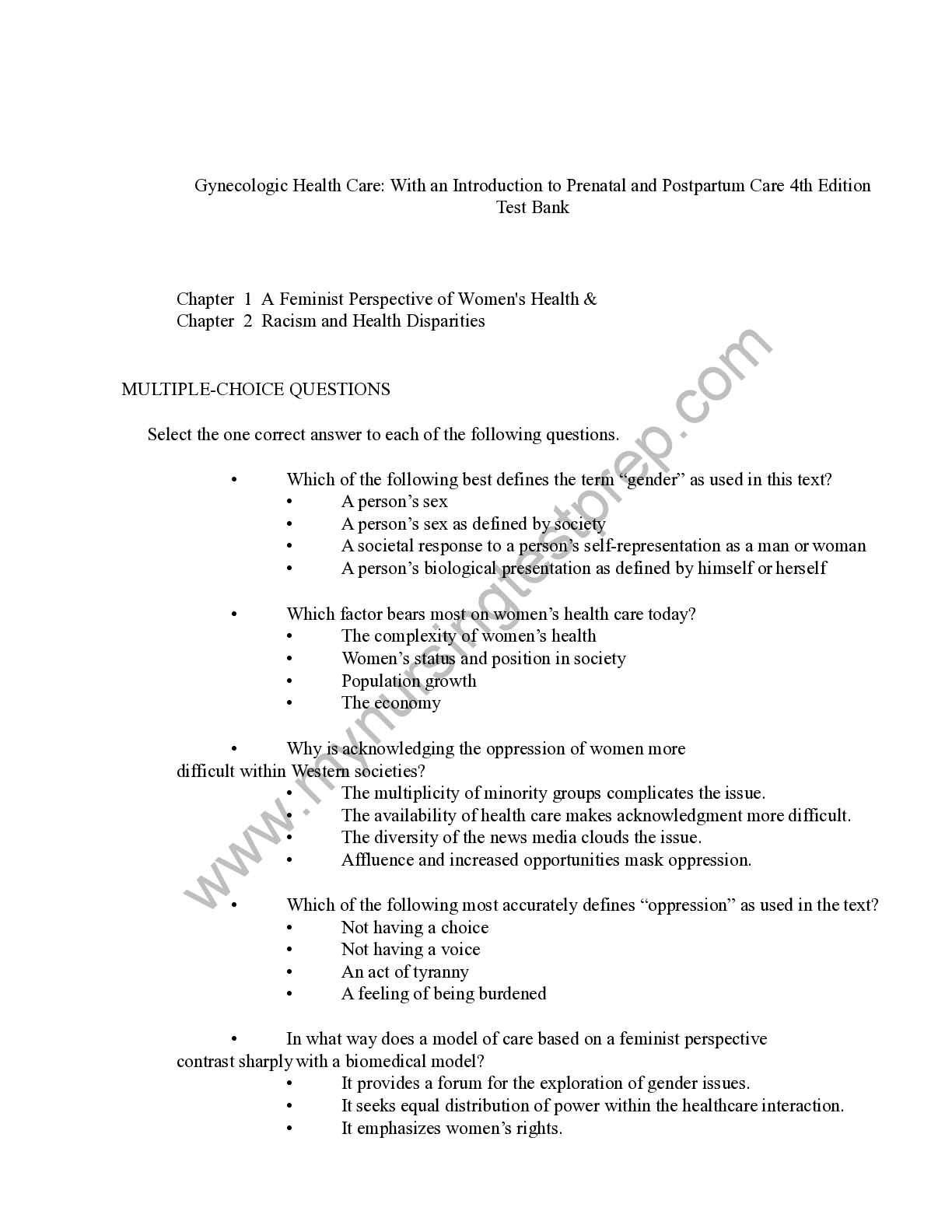
Buy this document to get the full access instantly
Instant Download Access after purchase
Add to cartInstant download
We Accept:

Reviews( 0 )
$21.50
Document information
Connected school, study & course
About the document
Uploaded On
Jun 30, 2023
Number of pages
86
Written in
Additional information
This document has been written for:
Uploaded
Jun 30, 2023
Downloads
0
Views
42




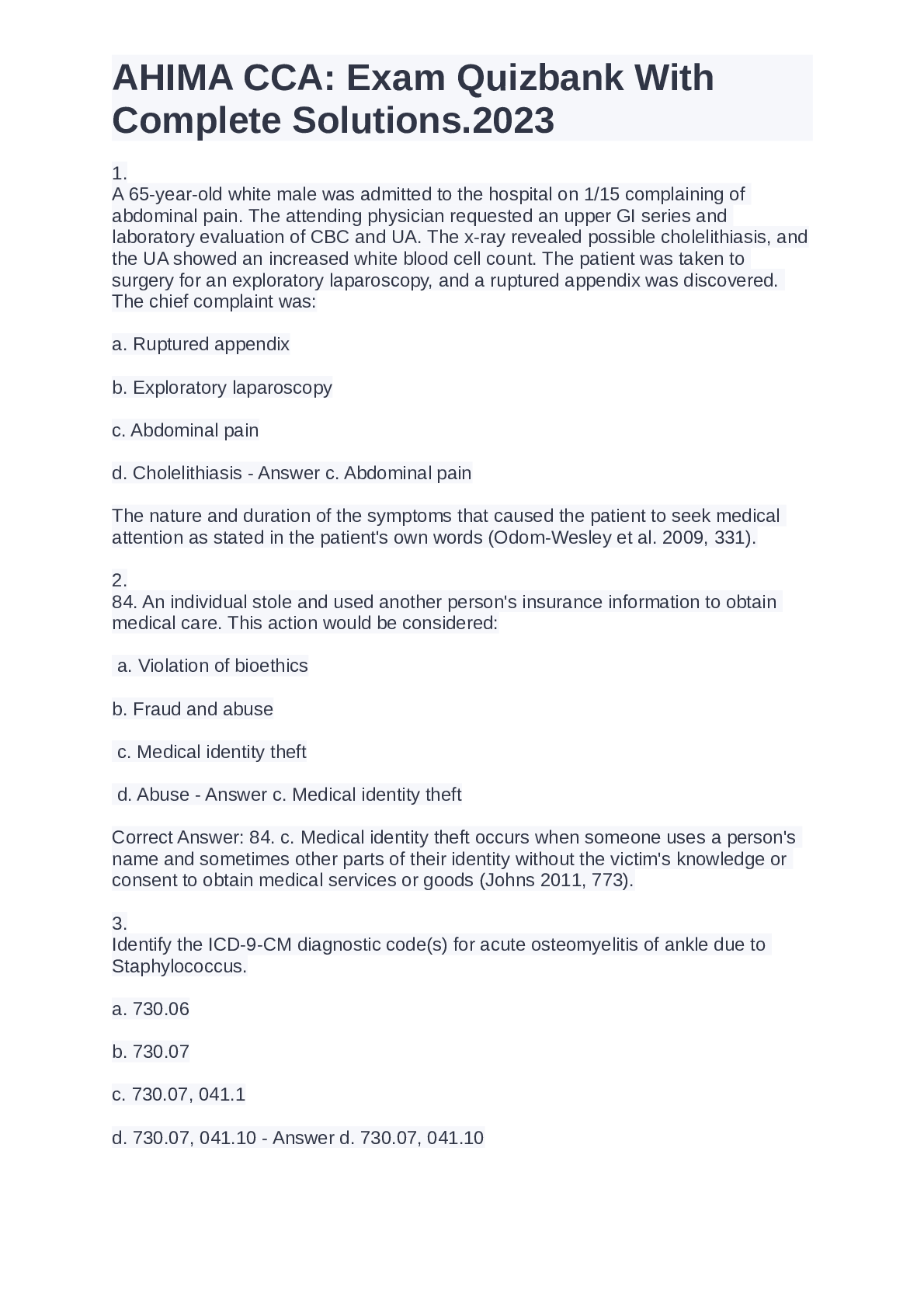
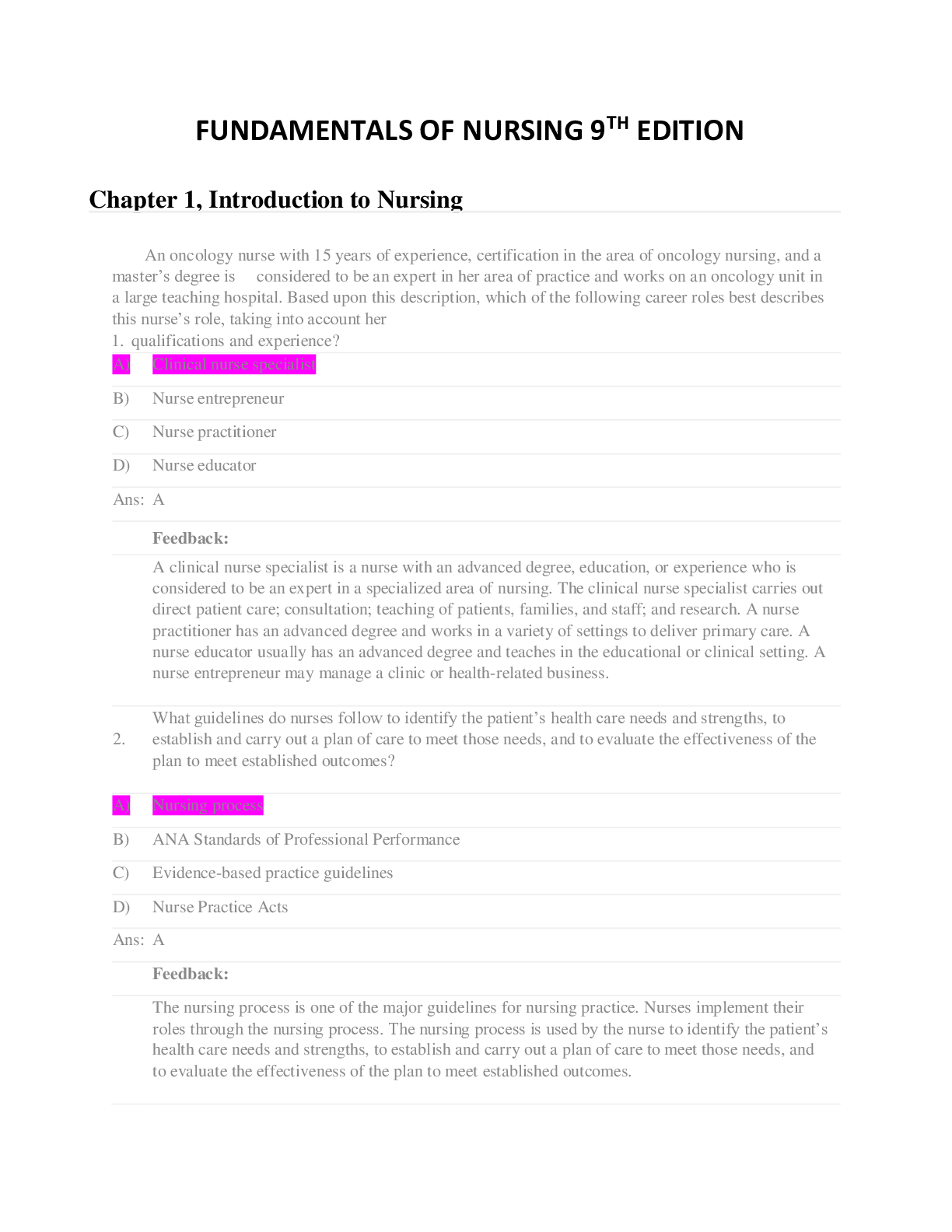
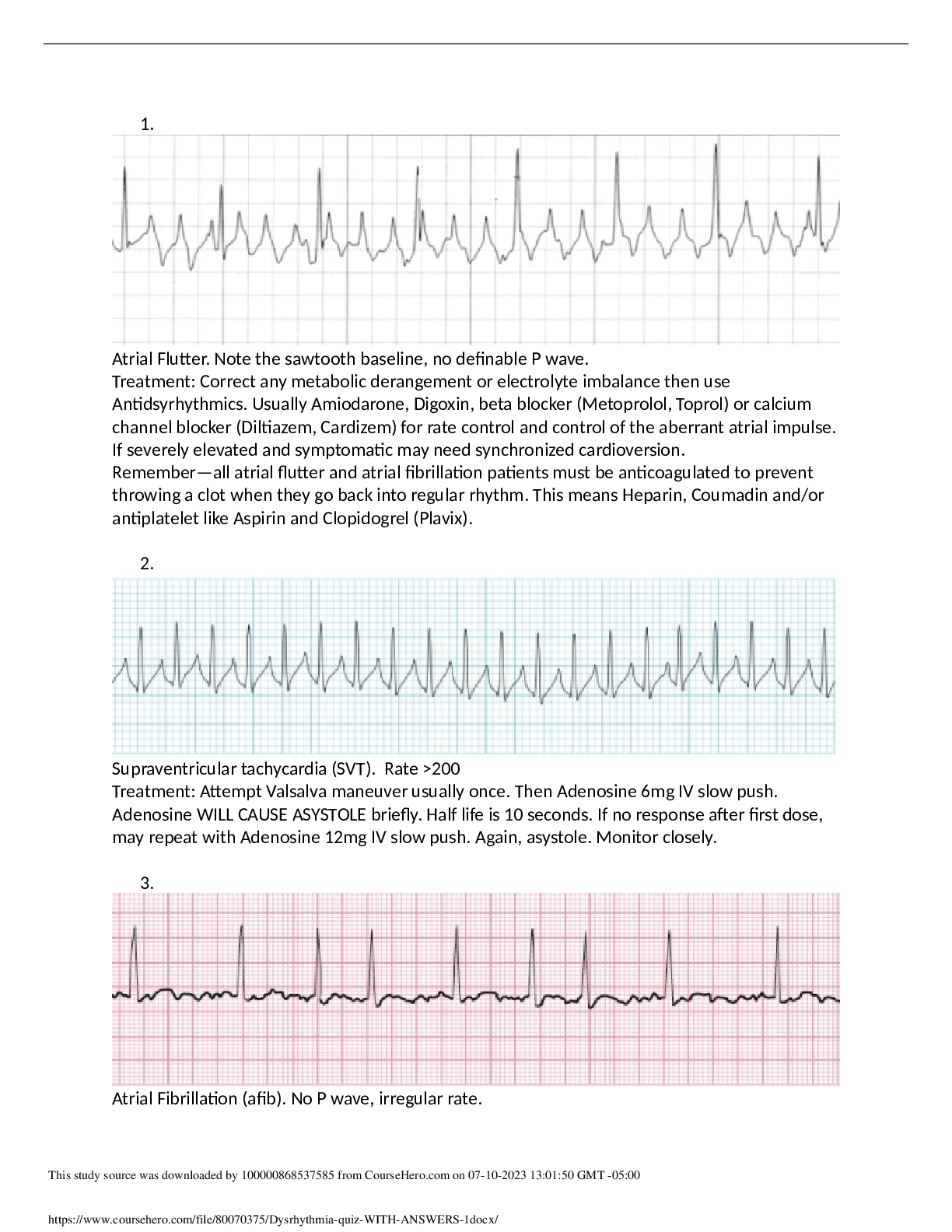



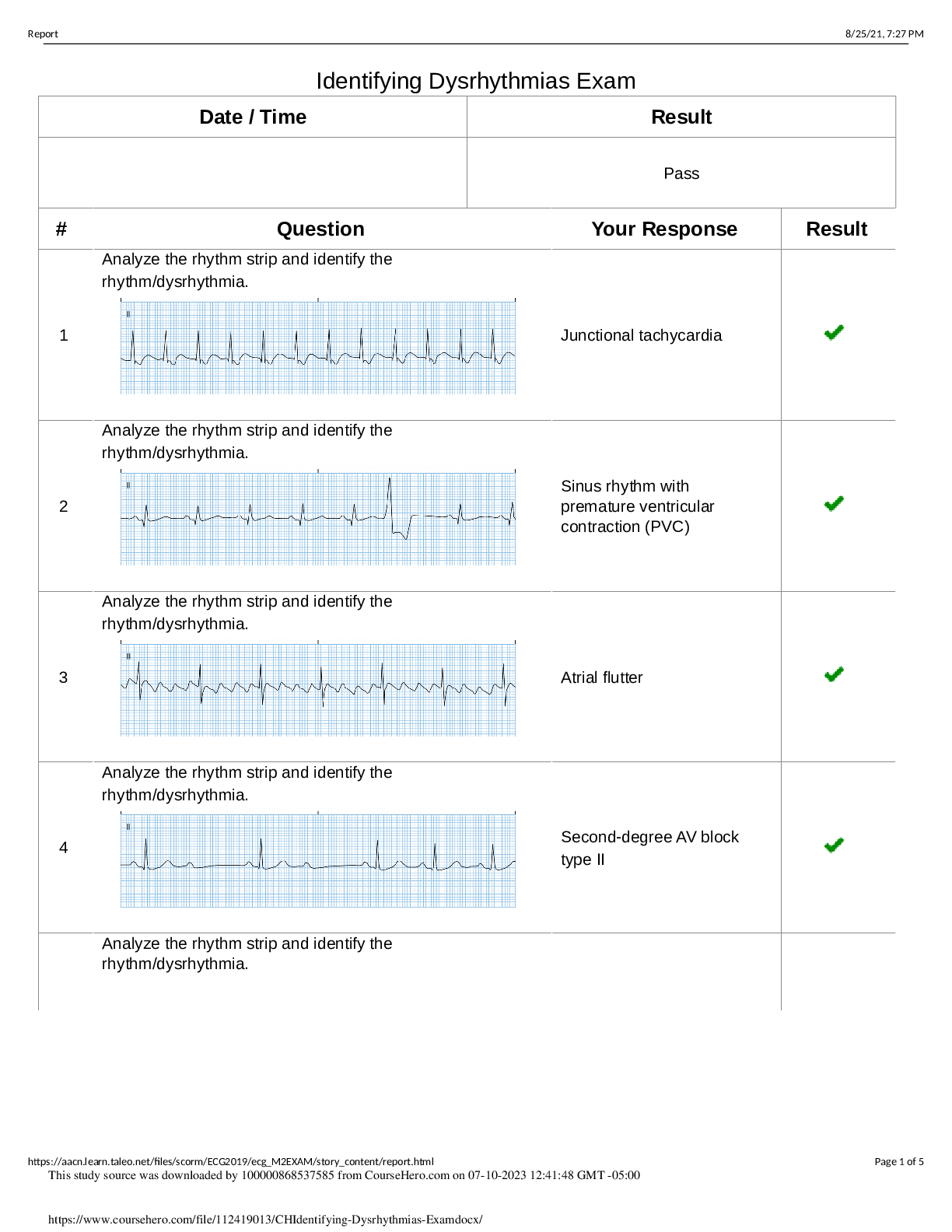
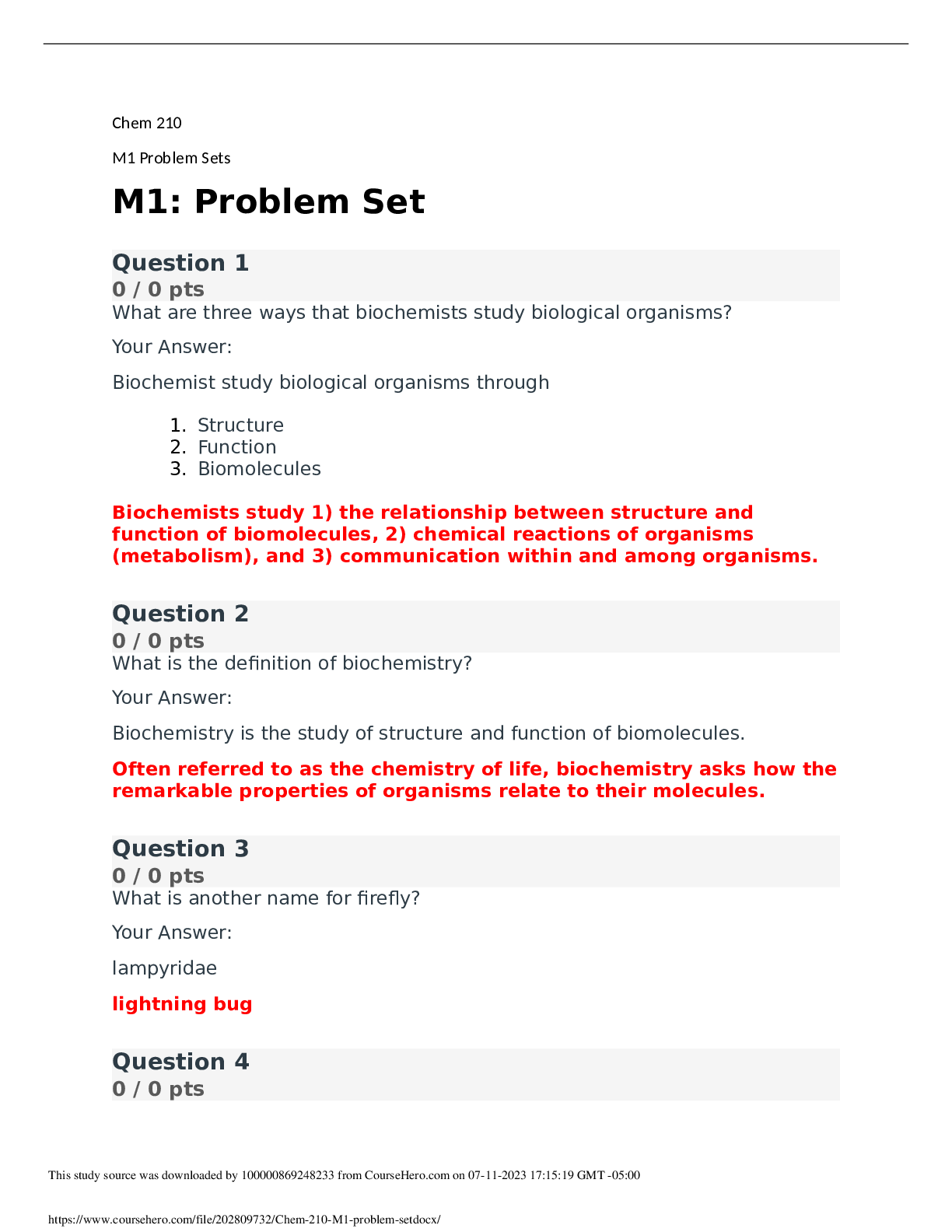









.png)



